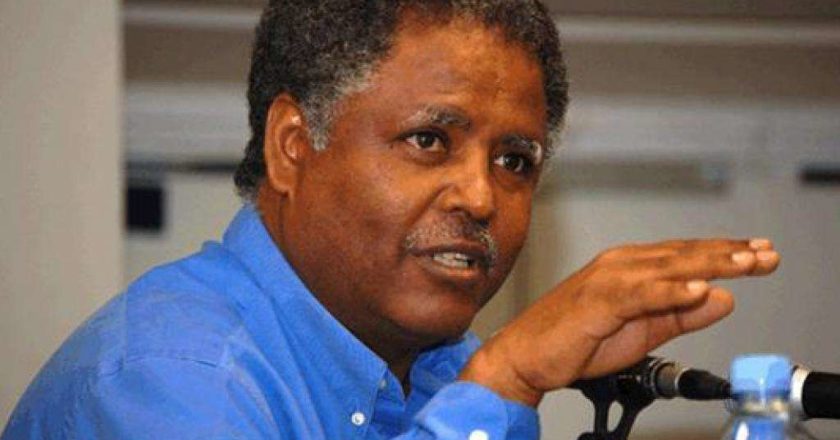Ethiopia pardons senior opposition leader sentenced to death


Ethiopia pardoned on Saturday an opposition leader with British citizenship who had been sentenced to death, the latest in a series of pardons and releases of jailed dissidents announced in the wake of years of violent unrest.
Andargachew Tsige was sentenced to death in absentia in 2009 over his role in the opposition group Ginbot 7, leading to his arrest in Yemen five years later and extradition to Ethiopia.
Andargachew served as secretary-general of the anti-government group, which describes itself as a reform movement but is branded a terrorist organization by Addis Ababa.
Attorney General Berhanu Tsegaye said on Saturday Andargachew has been pardoned “under special circumstances” along with 575 other inmates.
The decisions were made with the “intention of widening political space,” the attorney general told reporters in the capital, Addis Ababa. Andargachew is expected to be released within the next two days.
Thousands of prisoners, including several senior opposition leaders, have been freed since January having been accused of a variety of charges such as terrorism or incitement to topple the government.
The pardons are part of reforms that the government has pledged to undertake after violent unrest broke out three years ago, sparked by an urban development plan for Addis Ababa that critics said would trigger land seizures in the surrounding Oromiya region.
The protests broadened into rallies over political rights, leading to the resignation of Prime Minister Hailemariam Desalegn in February. He has since been replaced by former army officer Abiy Ahmed.
Ethiopia last carried out an execution in 2007, a rare move against a military officer convicted of killing a former head of security and immigration.
Ginbot 7 is among five groups Addis Ababa has blacklisted under anti-terror legislation, alongside the secessionist groups Oromo Liberation Front and the Ogaden National Liberation Front, as well as al Qaeda and Somalia’s al Shabaab.
Last week, the government and an exiled opposition party from Oromiya opened talks with the aim of enabling it to return to the political fold.
The Oromo Democratic Front (ODF) was formed in 2013 by former members of the Oromo Liberation Front and seeks self-determination for ethnic Oromos, Ethiopia’s largest ethnic group. Its leaders have been living in exile.